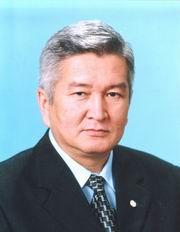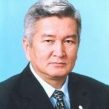
KYRGYZSTAN’S NEW CONSTITUTION PROMISES SUBSTANTIAL, LONG-TERM CHANGES
Publication: Eurasia Daily Monitor Volume: 3 Issue: 213
By:

Kyrgyzstan has become the first Central Asian country to endorse a constitution that proclaims a parliamentary state system and significantly trims the president’s powers. This achievement is the result of popular demand, voiced through almost week-long demonstrations organized by the “For Reforms” opposition bloc. According to For Reforms, substantial changes are now looming in the government. Prime Minister Felix Kulov and his government will be replaced by new candidates within two months.
The opposition, comprised of parliamentarians and NGO leaders, is frank about the fact that some of its leaders’ strong economic backgrounds helped to mobilize a capable political force. Many have described it as a “revolution of the bourgeoisie,” sponsored by well-off businessmen who are also concerned with political stability and an open market environment. For Reforms’ leaders invested in tents, food, leaflets, and other supplies for the protests.
For Reforms realizes that there is a myriad of amendments to be made to the new constitution in order to eliminate inconsistencies. Problems are likely to arise in the course of reappointing key government leaders, such as the prime minister and his cabinet. One of the obvious inconsistencies in the new constitution concerns conflicting definitions of the relative powers of the prime minister and parliament in forming the government. Another contradiction is the even number of parliamentary seats, which could make it difficult to create a parliamentary majority.
The new voting system should encourage political party formation, but this process will be rather slower than the changes within the government. According to For Reforms’ leader Raya Kadyrova, realistic predictions for the next parliamentary elections in 2010 indicate that half of the candidates elected through the majority system will still represent a class of rich entrepreneurs who are guided by private interests. Most seats allocated according to party lists will be taken by veteran party leaders and only about one-third will likely be distributed among political leaders who are not involved in businesses. Furthermore, members of civil society will be actively recruited into political life. For instance, Edil Baisalov, a widely known civic activist, is likely to be in high demand by a number of political parties.
Some international observers viewed the mass protests in central Bishkek earlier this month as a sign of escalating instability. Indeed, according to For Reforms’ leaders, their supporters nearly came to blows with a government-hired mob. Osmonbek Artykbaev, a member of parliament and For Reforms leader, says that the crowds were an inch away from a civil war. Although the government hired a counter-protest group composed of public employees, the opposition admits that it was responsible for accidentally provoking tensions.
During the protests, the Ministry of Interior was criticized for following presidential directives by selectively protecting pro-regime crowds. Kadyrova recounts that the government deployed internal troops dressed as civilians. She emphasized the fact that power institutions are still deeply politicized in Kyrgyzstan. The OSCE’s ongoing police reform, albeit equipping the police with modern equipment, was not efficient in increasing professionalism among its personnel.
The International Crisis Group’s recent report on Kyrgyzstan describes the opposition’s tensions with the government as signs of a mounting crisis. The group recommends involving the OSCE, Russia, and Kazakhstan into negotiations between conflicting political forces in Kyrgyzstan in order to prevent further “political breakdown.” However, Kyrgyzstan’s new constitution stands out as the most progressive document in the region, which was endorsed through democratic means and in a relatively peaceful way. Involving Russia and Kazakhstan, countries with more authoritarian regimes, would only decrease the potential efficiency of the new constitution. It is, on the other hand, important for the UN and OSCE to closely monitor the Kyrgyz government’s compliance with the new statutes of the constitutional order.
Bely parohod newspaper noticed that while the urban public was actively involved in political actions through organized protests, rural residents used the opportunity to come to the capital city, Bishkek, and engage in criminal activities (November 13). Kyrgyz President Kurmanbek Bakiyev is often portrayed as a country bumpkin who, in a stroke of luck, became president. Since winning the presidency in July 2005, Bakiyev has been contradictory in his behavior, indifferent to politics, and corrupt. As Kadyrova notes, Bakiyev does not need opponents because he is his own worst enemy, “who says one thing in the morning and in the evening contracts his own words.”
Bakiyev insists that the new constitution must come into effect gradually and is urging the opposition not to rush to replace the government. For Reforms leaders argue that Bakiyev is surrounded by advisors who have little regard for the president himself, but are concerned about the continuity of his power in order to hold on to their own positions. Once the new constitution was adopted, State Secretary Adakhan Modumarov and other members of the presidential administration showed their support for the new constitution to improve their relations with the opposition.
As Artykbaev told Jamestown, the Kyrgyz public and the politicians have to yet realize what substantial and positive changes the new constitution will entail. According to Artykbaev, the results in fact exceed the opposition’s expectations. The endorsement of the new constitution has enhanced the meaning of March 24, 2005, the day of the Tulip Revolution, an event that had largely been discredited by Bakiyev’s administration. For Reforms emphasized that recent changes also signify an inter-generational shift in Kyrgyz politics that will attract more young professionals into political life.




